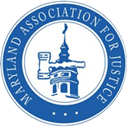Glossary for Nursing Home Abuse & Neglect Cases in Maryland
There are many medical and legal terms used when discussing the issues involved with the neglect and abuse of the elderly and disabled.
Abuse
- Emotional – A pattern of behavior or language that can seriously interfere with a senior’s cognitive, emotional or psychological well-being. Also referred to as mental or psychological abuse.
- Financial – The illegal or improper use of a person’s property, finances or other assets without that person’s informed consent or where consent is obtained by fraud or threat of force or through theft.
- Physical – The intentional use of physical force that may result in bodily injury or pain.
- Sexual – Any sexual contact or interaction (physical, visual, verbal or psychological) between the perpetrator and a victim who does not consent to it or lacks the ability to consent to it and who is harmed as a result.
Arbitration – The hearing of a dispute by a third person (arbitrator) or a panel of arbitrators chosen by either the defendant or by both of the parties. This is a way to avoid going through the court system to resolve a legal dispute. Often nursing home residents and their families waive their rights to use the court system by unknowingly signing arbitration agreements hidden in lengthy admission paperwork. Frequently, arbitration rules and how arbitrators are chosen can make it more difficult for plaintiffs to be successful.
Assisted Living Facility – For those unable to live independently it’s an option that provides help with meals, housekeeping, transportation and personal care. These facilities vary in the services and assistance they provide. Unlike nursing homes, assisted living facilities do not provide skilled nursing care. If that level of care is needed, they should be transferred to a nursing home, hospital or more appropriate care facility.
Civil lawsuit – A plaintiff (the party harmed) asks a court to use civil (not criminal) law for compensation for injuries and economic damages that resulted from the actions, or the failure to act, of the defendant (the person or entity accused of wrongdoing).
Dehydration – Dehydration occurs when the body does not have enough water to meet its needs. This can occur when a person doesn’t drink enough or not enough fluids are administered through an IV. It can lead to death if not corrected.
Discovery – The process by which the parties in a civil lawsuit request information and documents from each other. The parties can also ask each other to admit or deny facts related to the case. Witnesses can be deposed (asked questions under oath) during discovery.
Injunction – An order by a court which compels a party to do something, or which prevents a party from doing something, in order to avoid harm.
Joint and several liability – A legal doctrine that applies when there is more than one defendant, each of which are responsible for an injury, who may be required to pay some or all of the damages awarded in a lawsuit.
Loss of consortium – A claim for damages where the defendant’s actions or failure to act negatively impacted a relationship between two people.
Mediation – A form of alternative dispute resolution where parties to a lawsuit, or possible future lawsuit, meet with a neutral third party (the mediator) who tries to help them come to an agreement or settlement.
Medical malpractice – A cause of action against a health care provider or an organization providing health care, claiming that negligence took place during a course of treatment, care or supervision that resulted in harm or damages.
Neglect – Failure to give a person the care, services or goods necessary to avoid harm or illness.
Negligence – A person can file a legal claim for negligence if the defendant owed a duty of care to the plaintiff, by the defendant’s actions or failure to act that duty was violated, as a result the person was harmed in some way and the law recognizes a right to compensation for that harm.
Pharmaceutical error – An error that occurs somewhere in the medication process. The wrong drug may be prescribed; it may come in the wrong dose; the drug itself may be defective or counterfeit; or it may be administered in the wrong way.
Proximate cause – The last negligent act which contributes to an injury. A person generally is liable only if an injury was proximately caused by his or her action or by his or her failure to act when he or she had a duty to act.
Punitive damages – An award of money for an injured person to punish the defendant for extreme negligence, indifference to the safety of the person or intentionally harming the person.
Skilled nursing facility – An organization certified by Medicare to provide a combination of nursing and rehabilitative services. Also known as a nursing home.
Statute of limitations – A deadline for the filing of legal claims. Unless an exception applies, failure to file before the statute of limitations runs would result in the dismissal of a case.
Tort – A violation of civil law (not a contract claim) resulting in damages or harm, for which the court may provide a remedy through a lawsuit.
Call the Law Offices of Roger Weinberg, LLC, at 410-825-3161 or fill out this contact form if you or a loved one has suffered abuse or neglect at a Maryland nursing home, assisted living facility or group home and you have questions about the law and how it may work for you. We can help get the justice and compensation that your loved one deserves. We recognize that while there are many facilities that do a respectable job, there are just as many that do not — and it’s the vulnerable, elderly residents who pay the price.


 Roger Weinberg is a skilled and experienced attorney who has pioneered the legal field of representing Nursing Home, Assisted Living, and Developmental Disability victims and their families who have experienced abuse, neglect and wrongful death. He is a leader in this field and teaches other lawyers, students and medical personnel about the laws impacting such cases. [
Roger Weinberg is a skilled and experienced attorney who has pioneered the legal field of representing Nursing Home, Assisted Living, and Developmental Disability victims and their families who have experienced abuse, neglect and wrongful death. He is a leader in this field and teaches other lawyers, students and medical personnel about the laws impacting such cases. [ 



